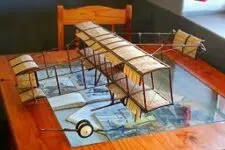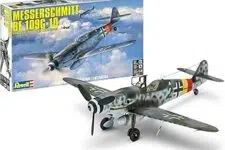
The hobby and toy market reached $103 billion in 2022. Yes, that’s billion with a B!
These numbers mean more than just statistics to hobby enthusiasts like us. They represent an exciting chance to build something special. Many of us dream about turning our passion for model kits, RC cars, or train sets into a successful hobby shop.
Our countless hours of building models, organizing collections and sharing tips with fellow enthusiasts have led us here. This expertise can become a profitable venture. A hobby shop’s success depends on more than product sales. It becomes a community hub where fellow hobbyists gather to learn and become skilled at their craft.
Want to start a hobby shop that makes its mark? This piece will walk you through market research, location selection, inventory management and marketing strategies. Your hobby shop dreams can become reality!
Planning Your Hobby Shop Business
Starting a hobby shop business requires solid research and careful financial preparation. The market shows promise with a 5.3% annual growth rate and revenue reaching $52.60 billion.
Conducting Market Research
We need to really understand our market before we open our doors. Our research shows hobby stores compete more with online retailers and mass merchandisers. Here’s what we’ll analyze:
- Customer demographics and priorities
- Local competition and market gaps
- Popular product categories and trends
- Price sensitivity and spending patterns
- Seasonal buying patterns
Creating a Business Plan
A complete yet practical business plan will guide us forward. The hobby and toy store industry employs approximately 150,000 people across 11,000 stores in the United States. Our plan must address e-commerce integration since many independent stores now develop online capabilities.
Calculating Startup Costs
Our original investment needs break down like this. A typical hobby shop needs $25,500 to $117,000 to start. Here’s where our money will go:
- Essential Startup Expenses:
- Retail space lease: $2,000-$5,000 monthly
- Original inventory: $10,000-$50,000
- Store fixtures and displays: $5,000-$20,000
- Point-of-sale system: $2,000-$10,000
Marketing costs range from $2,000 to $10,000 and website development requires between $2,000 and $10,000. Note that we’re not just opening a store – we’re building a community hub for fellow hobby enthusiasts.
Our financial projections should reflect the industry’s expected growth, especially as more baby boomers retire and invest in hobby supplies. Managing profit margins becomes crucial with increasing pressure from online retailers on traditional brick-and-mortar stores.
Choosing the Perfect Location
The location we pick for our hobby shop could determine its success or failure. Let’s delve into some vital factors that will guide us toward finding that perfect spot where our store can flourish.
Analyzing Local Demographics
Our potential customers should shape our location choice. Research indicates that hobby stores achieve better results in areas where the population lines up with our target market. These demographic factors deserve our attention:
- Population density and growth trends
- Average household income levels
- Age distribution of residents
- Local hobby and gaming communities
- Consumer spending patterns
Evaluating Competition
Success depends on understanding our competition. A detailed competitive map of our chosen area will help us navigate the market. Recent data reveals that competition between hobby retailers has grown fierce, especially with online sellers entering the picture. Our analysis should extend beyond direct competitors. Discount department stores and online retailers also compete for our customer base.
Assessing Space Requirements
Our store’s size and layout will substantially affect its success. Most thriving hobby shops need 800-1,000 square feet for retail display. Here’s what our space should include:
- Display Areas: Allow ample space for product showcases
- Gaming Tables: Set aside 20% of floor space for community participation
- Storage Room: Plan for adequate inventory storage
- Office Space: Include room for administrative tasks
- Customer Flow: Ensure easy navigation throughout the store
Geographic Information Systems (GIS) can enhance our decision-making process. These tools help us layer demographic data, competitor locations, and foot traffic patterns to pinpoint our ideal location.
Note that high traffic alone won’t guarantee success – we need the right kind of traffic. Studies show that hobby stores perform better when they’re available to their target demographic and offer adequate parking. The location should also accommodate future expansion, as many successful hobby shops grow their operations over time.
Building Your Product Inventory
A well-rounded inventory is vital to our hobby shop’s success. Our research shows that smart inventory management can substantially affect our bottom line. The best toy and hobby stores focus on accurate stock levels to meet what customers need.
Selecting Product Categories
The product mix needs careful selection based on market trends. Common hobby shop categories include:
- Plastic Models (including aircraft, cars, ships)
- RC Vehicles (planes, cars, helicopters, drones)
- Model Trains and Accessories
- Tools and Supplies
- Gaming Products
- Art and Craft Supplies
- Educational Products
Our data shows plastic models make up much of hobby shop inventory. RC vehicles and model trains remain popular choices among enthusiasts.
Managing Stock Levels
Smart inventory management is a vital part of our success. Our system will track stock levels immediately and alert us automatically when inventory runs low. This helps us:
- Monitor fast-selling items
- Identify slow-moving products
- Set specific reorder points
- Track seasonal trends
- Manage multi-attribute items
A multi-dimensional matrix inventory grid helps manage products with attributes like color, size, and style. This system lets us keep optimal stock levels without overstocking.
Working with Suppliers
Strong supplier relationships are key to healthy inventory levels. We need solid connections with manufacturers and distributors who provide reliable stock at competitive prices. Our research shows successful hobby shops work with multiple suppliers to ensure products stay available.
Suppliers need special order tracking capabilities and flexible product options. A CSV file import system makes product updates and inventory management quick and simple. This keeps our stock levels and pricing accurate throughout our product range.
Note that popular items need minimum reorder points, and seasonal products need markdown management systems. Balancing inventory across categories and building strong supplier relationships puts us in a better position to meet customer needs while keeping healthy profit margins.
Setting Up Shop Operations
The time has come to set up our shop operations after securing our location and stocking inventory. A welcoming and efficient environment plays a vital role in our success as a hobby shop owner.
Store Layout and Design
Our store’s layout should create an engaging shopping experience that naturally guides customers through merchandise. Studies show that well-laid-out displays can boost the shopping experience and promote customer loyalty. Let’s create an inviting space with:
- Interactive display areas for popular items
- Demonstration zones for RC vehicles
- Well-lit product showcases
- Clear, logical product organization
- Wide aisles for comfortable browsing
Point of Sale Systems
Managing daily operations requires a reliable POS system. Modern POS solutions come with features tailored for hobby shops, including:
- Inventory tracking with matrix capabilities
- Customer loyalty programs
- Multi-tender payment processing
- Integrated payment solutions
- Up-to-the-minute sales reporting
The system should handle both in-store and potential online sales since many hobby stores add an online component later.
Security and Insurance
Our investment needs detailed security measures and insurance coverage. These security measures will protect our business:
- Surveillance System: High-quality cameras with facial recognition and motion detection capabilities
- Access Control: Electronic locks with different access levels for staff
- Inventory Protection: RFID tags or barcode systems for tracking
- Emergency Planning: Regular safety drills and staff training
The right insurance policy should protect against common retail risks. Our coverage needs to include:
- General liability coverage for customer injuries
- Commercial property protection
- Product liability insurance
- Cyber insurance for payment data protection
Local police and fire departments can provide additional security support through established relationships. These systems and protections create a strong foundation for our hobby shop’s daily operations while keeping our customers, staff, and inventory safe.
Marketing Your Hobby Shop
Success in hobby retail marketing demands a presence on multiple channels today. Studies reveal that 97% of customers read business messages almost instantly. This requires a detailed marketing strategy that connects with customers both online and offline.
Digital Marketing Strategies
A strong online presence can boost sales by 20-30% compared to physical stores alone. These channels will help us reach our audience:
- Website optimization with SEO focus
- Email marketing campaigns
- Social media participation (Facebook, Instagram, Pinterest)
- Online advertising through targeted platforms
- SMS marketing for immediate customer reach
Email marketing yields impressive results with a median ROI of 122%. Our digital platforms will display products, share project ideas and build lasting customer relationships.
Local Advertising Methods
Digital marketing works best when combined with traditional advertising methods. Research shows this combination attracts hobby enthusiasts of all ages. Our local outreach includes:
Traditional print materials like mailers and newsletters Local newspaper advertisements Community bulletin boards Mutually beneficial alliances with local organizations Discount coupons and promotional flyers
Building Community Presence
A thriving community hub leads to lasting success. Businesses that host regular events experience 20% higher customer loyalty. These initiatives will strengthen our community:
- Host workshops and demonstrations
- Organize hobby-specific competitions
- Create a loyalty program for regular customers
- Partner with local hobby clubs
- Sponsor community events
Customer preferences show that 68% of people choose stores offering interactive experiences. Our store will become a destination where hobby enthusiasts gather to share their passions and learn from each other.
Businesses that utilize cross-promotion opportunities typically see 10-30% more revenue through shared customer bases. Working with local artists, crafters, and hobby clubs expands our reach while supporting our community.
Detailed analytics systems will track our marketing performance. This data-driven approach helps understand which strategies strike a chord with customers and guides our marketing adjustments. We monitor engagement across all channels to fine-tune our approach.
Note that our marketing should mirror our store’s personality and values. A consistent brand message across all platforms, adapted to each channel’s unique features, builds a strong presence in both digital and physical spaces.
Conclusion
A hobby shop startup needs careful planning, deep commitment, and a solid grasp of both business basics and what hobby enthusiasts want. Our detailed piece shows that success relies on proper market research, picking the right location, and managing inventory effectively.
Today’s hobby shops must combine old-school retail methods with digital tools. Well-integrated POS systems, reliable security, and targeted marketing create a successful business that doubles as a retail space and community gathering spot.
A great hobby shop does more than sell products – it builds lasting customer relationships through hands-on workshops, special events, and shared hobby interests. Your shop can become profitable and bring joy to fellow enthusiasts when you plan properly and put these ideas into action.
The hobby industry keeps expanding and offers great potential to business owners who stick to these principles. Begin with modest goals, develop strong supplier connections, and make customer satisfaction your top priority. Your path to hobby shop success begins right here.









